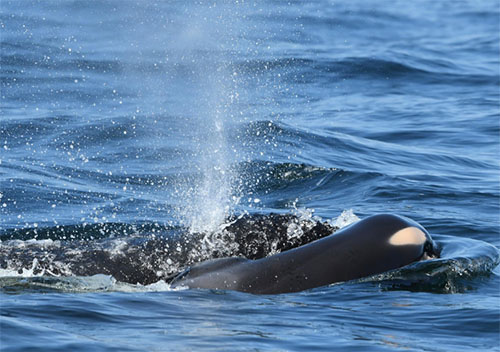— from New York Times —
 Among the many quirks of human nature, one that has always struck me as particularly worthwhile is the tendency to project our own feelings onto other animals. This seems to me like a fast route to empathy, a way to bring us closer to different species. But many scientists disagree. They call this anthropomorphism, and they discourage it. They cringe when a viral video of a piglet apparently twerking to a Rihanna song inspires hundreds of comments praising the animal’s confidence, sense of rhythm and musical taste. What if the piglet is actually displaying aggression, albeit to a catchy beat? Is it dancing, or is the piglet freaked out? And who says Grumpy Cat is really grumpy?
Among the many quirks of human nature, one that has always struck me as particularly worthwhile is the tendency to project our own feelings onto other animals. This seems to me like a fast route to empathy, a way to bring us closer to different species. But many scientists disagree. They call this anthropomorphism, and they discourage it. They cringe when a viral video of a piglet apparently twerking to a Rihanna song inspires hundreds of comments praising the animal’s confidence, sense of rhythm and musical taste. What if the piglet is actually displaying aggression, albeit to a catchy beat? Is it dancing, or is the piglet freaked out? And who says Grumpy Cat is really grumpy?
Scientists offer these words of caution with good reason: There are a number of very valid arguments against anthropomorphizing the creatures with whom we share this world, not least of which is that their inner lives deserve to be evaluated on their terms — not ours. At times, interpreting their behavior through a human lens might be misleading, silly or even harmful. But at other times — and they occur more often than science would care to admit — perceiving ourselves in these others is exactly the right response. When an animal’s emotional state is obvious to anyone with eyes and a heart.
Such is the case with Tahlequah, also known as J35, a 20-year-old female orca from the critically endangered southern resident population based near Puget Sound, Wash. On July 24, she gave birth to a female calf, who lived for just 30 minutes. The calf was emaciated, lacking enough blubber to stay afloat. Tahlequah kept the body at the surface, supporting it on her head or holding it in her mouth. Orcas and other cetacean species have been observed carrying their dead, but rarely longer than a day. Tahlequah has been swimming with her daughter’s body through choppy seas for, as of Friday, 10 days and counting, on what social media observers and orca researchers call a “tour of grief.” They’re right.
READ FULL STORY: .nytimes.com/2018/08/04/the-orca-her-dead-calf-and-us
**If you are reading theOrcasonian for free, thank your fellow islanders. If you would like to support theOrcasonian CLICK HERE to set your modestly-priced, voluntary subscription. Otherwise, no worries; we’re happy to share with you.**







